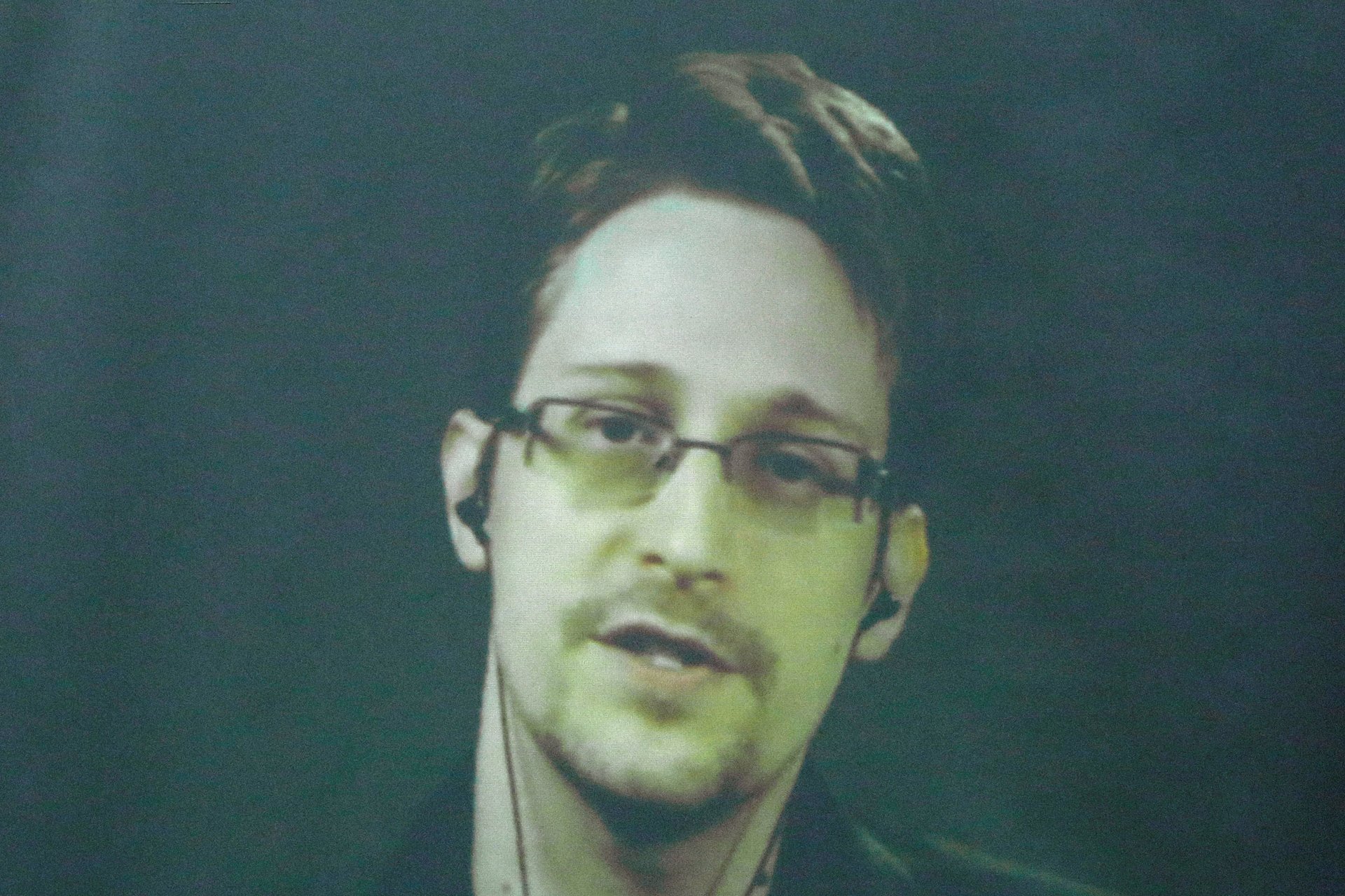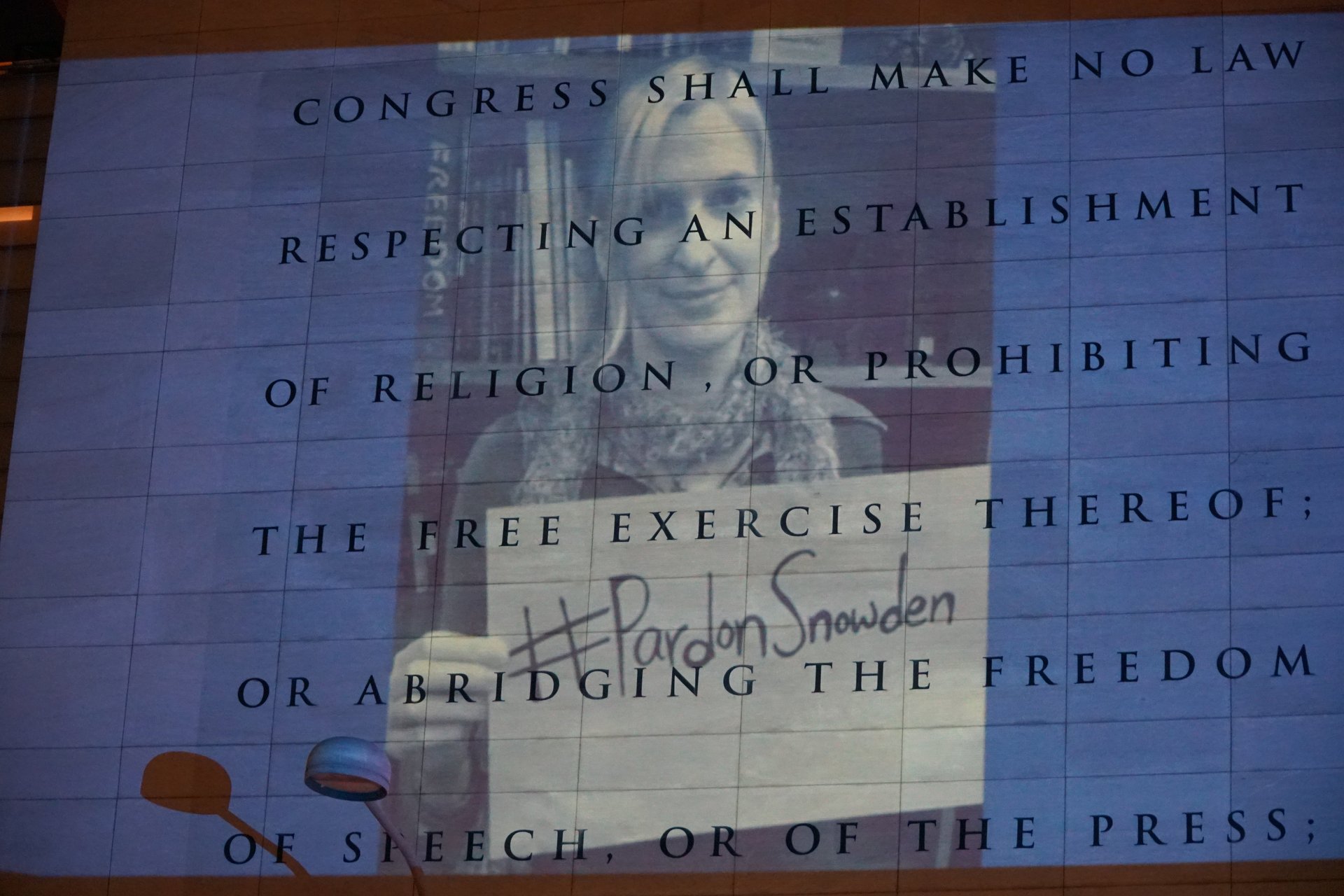President Obama must pardon Edward Snowden to show Donald Trump that freedom requires transparency
As reporters fret over the challenges they will surely face in a Trump administration, we’d all be well served to remember that we have whistleblower Edward Snowden to thank for some of the best journalism of recent history. This model of independent and adversarial journalism needs championing now more than ever. And this is why US president Barack Obama must pardon him before he turns the keys of the White House over to Donald Trump.


As reporters fret over the challenges they will surely face in a Trump administration, we’d all be well served to remember that we have whistleblower Edward Snowden to thank for some of the best journalism of recent history. This model of independent and adversarial journalism needs championing now more than ever. And this is why US president Barack Obama must pardon him before he turns the keys of the White House over to Donald Trump.
Much changed after Snowden disclosed information to journalists about the NSA’s global dragnet. All three branches of the US government took steps to rein in mass surveillance. Technology companies improved the security of their products. Citizens the world over began paying attention to the privacy of their data, and journalists took new pains to protect their sources. It was no wonder the Guardian and Washington Post earned a Pulitzer Prize for their coverage of Snowden and the NSA; democratic progress is incumbent on the ability of citizens to evaluate how they’re governed.
In honor of International Human Rights Day in December, the campaign to pardon Edward Snowden projected messages of support for the whistleblower onto the side of the Newseum, a Washington, DC museum that celebrates the freedom of the press. The messages were projected onto a giant, concrete tablet into which the First Amendment is chiseled. There is no better canvas for celebrations of the courage to dissent, the right to speak truth to power, and the intrinsic value of scrutinizing the powerful. (Full disclosure: The Newseum had no advance knowledge of this action.)
Regular people wrote to us to show their support and solidarity with Snowden. Someone called Tess wrote: “Ed, I’m on your side. You’re a hero and an example of what it means to be an American. Thank you for making such an incredible sacrifice in order that we might move a bit more toward the truth.” Similarly, someone identified only as “Major Rick” wanted to world to know “Snowden is the epitome of public service. He makes me proud to be an American.”

While powerful, these are more than expressions of support, however. They affirm what he represents: truth-telling in the face of a colossally powerful system predicated on evading democratic accountability. These values are at the very heart of effective journalism, and they are under threat.
In October, when our nation’s pundits were still not taking Donald Trump’s candidacy seriously enough, the Committee to Protect Journalists warned that Trump represented “a threat to press freedom unknown in modern history.” Trump has made a public mockery of the Fourth Estate, targeting journalists and outlets he doesn’t like with cruelty and lies, and disregarding the conventions respected by his predecessors. Journalists are readying for historically low levels of access to government, threats of crippling lawsuits, and new attempts to delegitimization their work, all perpetuated by the most powerful man in the world.
This kind of closed-door politics, combined with some of the blatantly unconstitutional policies Trump is promoting, makes for an explosive mix. How will we know if the government is abusing its powers if reporters have virtually no access?
This is why we’re going to need whistleblowers like Snowden more than ever going forward. Overzealous and anti-democratic classification is integral to the national security state, which considers itself immune to traditional mechanisms of oversight. When it comes to the government’s most far-reaching powers in the “war on terror,” both the judicial branch and the US congress have generally looked away.
We need American media institutions to be aggressive in holding officials to account, and they need sources who can shed light on what the government is doing. It’s thanks to brave individuals from the inside that we learned details of America’s torture of detainees, war crimes in Iraq and Afghanistan, the contours of its mass surveillance programs, and more. It’s also thanks to whistleblowers and their media partners that in some cases, we’ve been able to correct our course.
This isn’t to suggest our current president has celebrated leaks. The Obama administration has prosecuted whistleblowers aggressively, and its Department of Justice has threatened at least one journalist with prison for failing to disclose his confidential source.
These heavy-handed approaches are meant to deter would-be leakers. But under a Trump administration we’re going to rely even more on the bravery of insiders—working in tandem with an adversarial media—to act as a check and balance against the threat excessive secrecy poses to our democracy.
Thanks to Snowden and the reporters he worked with, our institutions are worthier of the public’s trust. “You have set a higher standard for all of us government employees” read one of the messages to him projected in Washington. Every journalist in the US, along with every American worried about how Trump will govern this country, should take heart in this message.
By pardoning him, president Obama would send a message to the president-elect, to the country, and to the world—the United States recognizes that without an informed public, all of our rights are under peril.